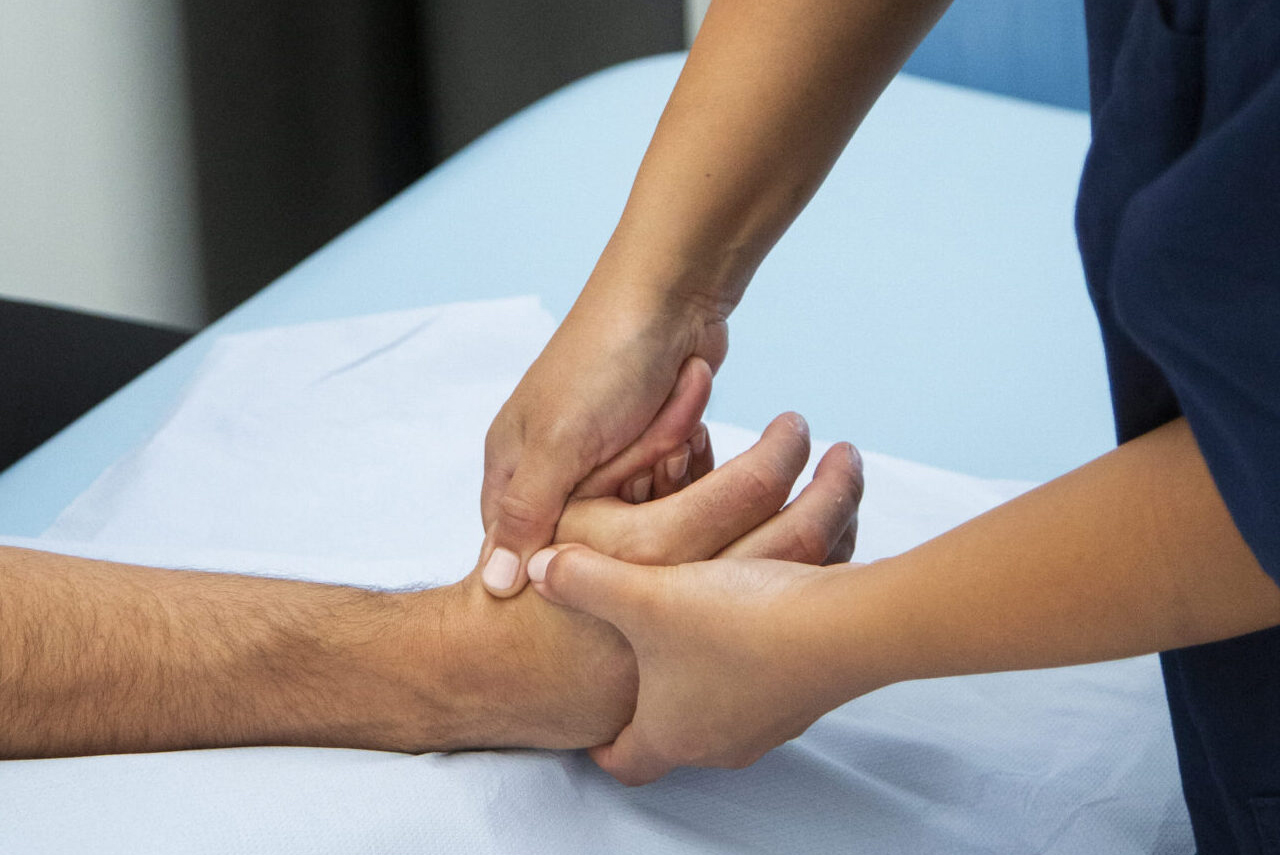
Can physiotherapy help manage rheumatoid arthritis? (A Patient’s Guide)
Rheumatoid arthritis (RA) is a chronic autoimmune disorder that affects millions of people worldwide. According to the National Health Service (NHS), around 400,000 people in the UK have Rheumatoid arthritis, and it can affect people of any age, but it usually starts between the ages of 40 and 50. Characterised by joint pain, swelling, and stiffness, RA can have a significant impact on a person’s quality of life. While there is no cure for RA, there are a variety of treatments that can help manage symptoms and improve overall function.
The symptoms of RA can vary from person to person, but some common symptoms include:
It’s important to note that RA is a chronic condition, which means that symptoms can come and go over time, and that the severity of symptoms can also vary.
The diagnosis of RA can be difficult since the symptoms may resemble those of other conditions, and there is no single test available to diagnose RA; however, a combination of assessments and tests can assist in the diagnosis process.
Understanding the Importance of Physiotherapy for Rheumatoid Arthritis Patients
Flare-ups of rheumatoid arthritis can be particularly challenging for patients and difficult to predict, as they can experience a sudden worsening of symptoms, including joint pain, stiffness, and inflammation. During these periods, physiotherapy can play a critical role in helping patients manage their symptoms and maintain their quality of life. A physiotherapist can work with patients to develop a personalised exercise program that can help reduce pain, improve joint mobility, and prevent further damage to the joints. For example, if a patient has difficulty with gripping or grasping objects due to RA in their hands, a physiotherapist might prescribe exercises that focus on improving hand strength and dexterity.
In addition, physiotherapy can also help reduce pain and inflammation associated with RA. A recent study published in the Journal of Rheumatology, by the Canadian Rheumatology Association Foundation, found that physiotherapy can help reduce pain and improve physical function in people with RA. The study also found that patients who received physiotherapy were less likely to require additional medical interventions, such as surgery or medication changes, to manage their symptoms.
There are a variety of physiotherapy techniques that can be used to manage RA symptoms. Some of the most common include:
- Exercise Therapy;
- Manual Therapy;
- Therapeutic Modalities.
The Role of Ongoing Physiotherapy in Long-Term Management of Rheumatoid Arthritis
While physiotherapy can be an effective tool in the short term for managing RA symptoms, it can also play a critical role in the long-term management of the condition. Regular check-ins with a physiotherapist can help monitor progress, adjust treatment plans as needed, and help patients maintain their overall health and well-being.
According to a report from the UK’s National Institute for Health and Care Excellence (NICE), physiotherapy should be considered a core component of RA management. The report notes that physiotherapy can help improve physical function and reduce pain, and can be used in conjunction with other treatments such as medication and lifestyle changes to help manage the condition over the long term.
At Physiomove London, we are dedicated to helping patients with rheumatoid arthritis achieve their goals and improve their quality of life. Our team of qualified physiotherapists has experience working with RA patients and can develop a personalised treatment plan to help manage symptoms and improve overall function. Contact us today to schedule a consultation and take the first step towards a healthier, more active life.
Rheumatoid Arthritis FAQ
Q: Can physio help me regain movement & strength?
A: Yes it can, through tailored exercises specifically designed to improve function without causing flare ups
Q: Can I train in a gym or join fitness classes?
A: Yes if you are not going through a flare up. However, pacing is key to success in maintaining a healthy training routine.
Q: What treatments can be used to reduce pain and stiffness?
A: Heat, wax therapy, joint mobilisation are a few examples of modalities that can greatly help pain management in RA












